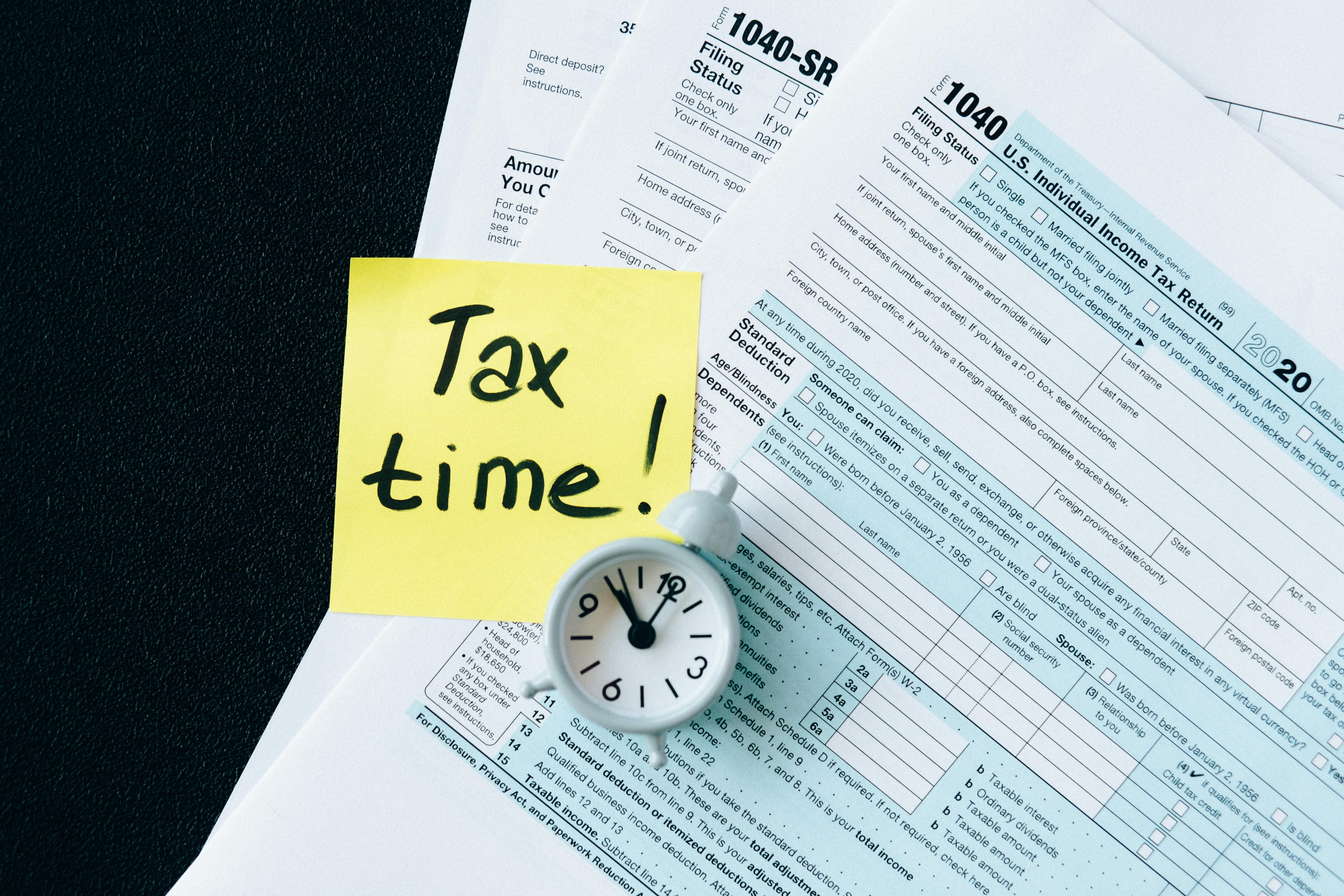Maximize Your Returns: Tax Benefits of Real Estate Investing Explained
Real estate investing isn't just about appreciation or cash flow. It's also a goldmine of tax advantages, helping you keep more money in your pocket while building long-term wealth. Utilizing tax deferred retirement accounts, like health savings accounts (HSAs) and self-directed IRAs (SDIRAs), can further enhance tax efficiency in real estate investment strategies. Whether you're a beginner or seasoned investor, understanding the tax code is essential. Below, we break down the top tax advantages you should be using, including filing a joint tax return for significant benefits, especially with long-term capital gains.

Introduction to Real Estate Investing
Real estate investing is a powerful strategy for building wealth and generating passive income. Understanding the tax benefits is crucial for real estate investors. Rental income provides steady revenue, while tax deductions reduce tax liability. Key advantages include deductions for mortgage interest, property taxes, and operating expenses. Investors can also benefit from depreciation deductions and defer capital gains taxes through a 1031 exchange.
Working with a qualified tax professional and keeping accurate records ensures maximum deductions. By leveraging these tax benefits, investors can significantly reduce their tax burden and enhance returns. Whether experienced or new to investing, understanding these benefits is essential for financial success.
Depreciation: The Hidden Tax Shield
Depreciation is one of the most powerful tools in real estate. It allows you to deduct a portion of your property's value each year as it "wears out," even if it's actually increasing in value. However, it's important to note that if you sell the property within a year, the profits are taxed as ordinary income, which can be higher than long-term capital gains.
Here's how it works:
For residential properties, the IRS allows you to depreciate over 27.5 years.
For commercial properties, the schedule is 39 years.
So for instance, if you bought a rental for $250,000 (excluding land), you could deduct over $9,000 each year in depreciation. This deduction helps offset your rental income, reducing your taxable liability without impacting your actual cash flow.
Mortgage Interest Deduction
Your mortgage isn't just a tool for leverage—it's a tax break too. The interest paid on your loan payments is fully deductible on investment properties. This is especially helpful in the early years of your mortgage when interest makes up the bulk of your payment. You can deduct mortgage interest, points paid at closing, and origination fees (in some cases). Track these expenses carefully and report them annually.
Deductible Operating Expenses
Almost every cost you incur while managing your rental property is deductible, known as "ordinary and necessary" expenses according to the IRS code. Common deductible expenses encompass property management fees, maintenance costs, insurance, mortgage interest, property taxes, and legal and accounting fees. These deductions play a crucial role in reducing your net taxable rental income, ultimately saving you money each year.
Common deductible expenses include:
Property management fees
Repairs and maintenance
Legal and accounting services
Insurance premiums
Utilities (if you pay them)
Office supplies and software
Advertising and marketing
Tenant screening services
These deductions reduce your net taxable rental income, saving you money every year.

Qualified Business Income (QBI) Deduction
Thanks to the Tax Cuts and Jobs Act, many real estate investors may qualify for the Qualified Business Income deduction, also known as the pass-through deduction. This significant tax advantage allows you to deduct up to 20% of your rental profits if your real estate activities qualify as a business under IRS guidelines. To be eligible, your rental operations must be considered a "trade or business," which typically involves regular, continuous, and profit-driven management of your properties. Consulting with a tax professional is crucial to confirm if your rental activity meets these criteria and to ensure you are maximizing this tax benefit effectively.
1031 Exchange: Defer Capital Gains Taxes
A 1031 exchange enables you to defer capital gains taxes when selling one property and purchasing another. This powerful strategy keeps your money working for you—rather than handing it to the IRS. It is crucial to identify a replacement property within a specific timeframe to qualify for the exchange, and this new property must have a value equal to or greater than the sold property.
To qualify, you must:
A 1031 exchange enables real estate investors to postpone paying capital gains taxes when they sell a property and purchase another one. To qualify, you must purchase a "like-kind" investment property and reinvest the proceeds within strict timeframes: identify a replacement property within 45 days and close within 180 days. A qualified intermediary must hold the funds during this process. This strategy enables wealth-building on a tax-deferred basis, as it can be repeated multiple times, deferring taxes until you choose to cash out, often during retirement when your tax bracket may be lower. Leveraging a 1031 exchange allows investors to keep their funds working for them and optimize real estate investment strategies effectively.
Cost Segregation: Accelerate Your Deductions
Cost segregation is an advanced tax strategy that breaks a property into components with shorter useful lives (e.g., 5, 7, or 15 years). This allows you to accelerate depreciation and take larger deductions earlier. Cost segregation is one of many tax strategies that can help maximize tax benefits.
Items that can be depreciated faster include:
Flooring
Appliances
HVAC units
Cabinets
Landscaping
You'll need a professional cost segregation study, but it can generate six-figure deductions in year one for larger properties.

Tax-Free Cash via Refinancing
Need cash but don't want to sell and trigger capital gains? Refinancing is a strategic option. When you refinance a property and pull out equity, that money is not taxable because the IRS doesn't count borrowed money as income. This allows you to access funds tax-free, which can be reinvested in more real estate, used to renovate existing units, or utilized to pay off higher-interest debt. It's important to ensure that the new loan terms align with your cash flow strategy. Refinancing can also enhance tax efficiency by providing access to capital without triggering taxable events, making it a valuable tool for real estate investors looking to optimize their financial strategies.
Property Tax Deductions
Property taxes are another recurring expense that is fully deductible, making it crucial to deduct them properly, especially if your property taxes are high. These deductions can be written off annually, further lowering your taxable income and reducing your overall income taxes. To maximize this benefit, it's essential to keep official tax statements and payment records for your accountant. Properly deducting property taxes can significantly decrease your tax liability, allowing real estate investors to retain more of their rental income and enhance their tax efficiency.
Home Office Deduction (For Landlords & Flippers)
For those managing their real estate business from home, the home office deduction can be a valuable tax benefit. It allows you to deduct a portion of expenses such as rent, mortgage interest, utilities, and internet costs. This deduction can also contribute to lowering self-employment tax for real estate investors who are self-employed. This deduction can also help reduce self-employment tax for self-employed real estate investors. To qualify, the space must be used exclusively and regularly for business purposes and must be your principal place of business. It's essential to use IRS Form 8829 to calculate this deduction accurately, ensuring that you maximize your tax benefits while remaining compliant with tax regulations. By leveraging the home office deduction, real estate investors can effectively reduce their tax liability and enhance overall tax efficiency.

Travel and Transportation Deductions
If you travel to check on your properties, meet with contractors, or attend real estate seminars, those miles and expenses are deductible. To maximize these deductions and ensure compliance with tax regulations, it's crucial to maintain accurate records and utilize professional accounting services, including accounting fees. By doing so, you can write off expenses such as mileage or gas, airfare, hotel stays, and meals (50% deductible if business-related), as well as tolls and parking fees. Keeping detailed logs, receipts, and appointment notes will support these deductions, helping real estate investors reduce their taxable income and enhance overall tax efficiency. This strategy is particularly beneficial for property owners who actively manage their real estate investments and seek to minimize their tax burden while maximizing tax savings.
Real Estate Professional Tax Status
This is a game-changer for high-income earners. Qualifying as a Real Estate Professional under IRS rules allows you to deduct unlimited passive losses against active income, making it especially powerful for full-time investors or agents who own rentals. To qualify, you must spend over 750 hours per year in real estate, ensure real estate is your primary profession, and materially participate in the business. Understanding and complying with tax regulations is crucial to achieving Real Estate Professional status, providing a significant advantage in reducing tax liabilities and enhancing overall tax efficiency for those deeply involved in real estate activities.

Conclusion: Use the Tax Code to Your Advantage
Real estate offers some of the most generous tax benefits in the entire IRS code. By leveraging depreciation, operating deductions, and strategies like 1031 exchanges, you can build wealth faster and more efficiently. Understanding and maximizing real estate tax benefits, such as the 1031 exchange and opportunity zones, can significantly reduce your tax liabilities. Implementing various tax strategies is crucial to minimize tax burdens and maximize profits. The key is to document everything, stay compliant, and work with professionals who understand real estate. The more tax-savvy you are, the more money you'll keep—and reinvest. Don't just invest. Invest smart.